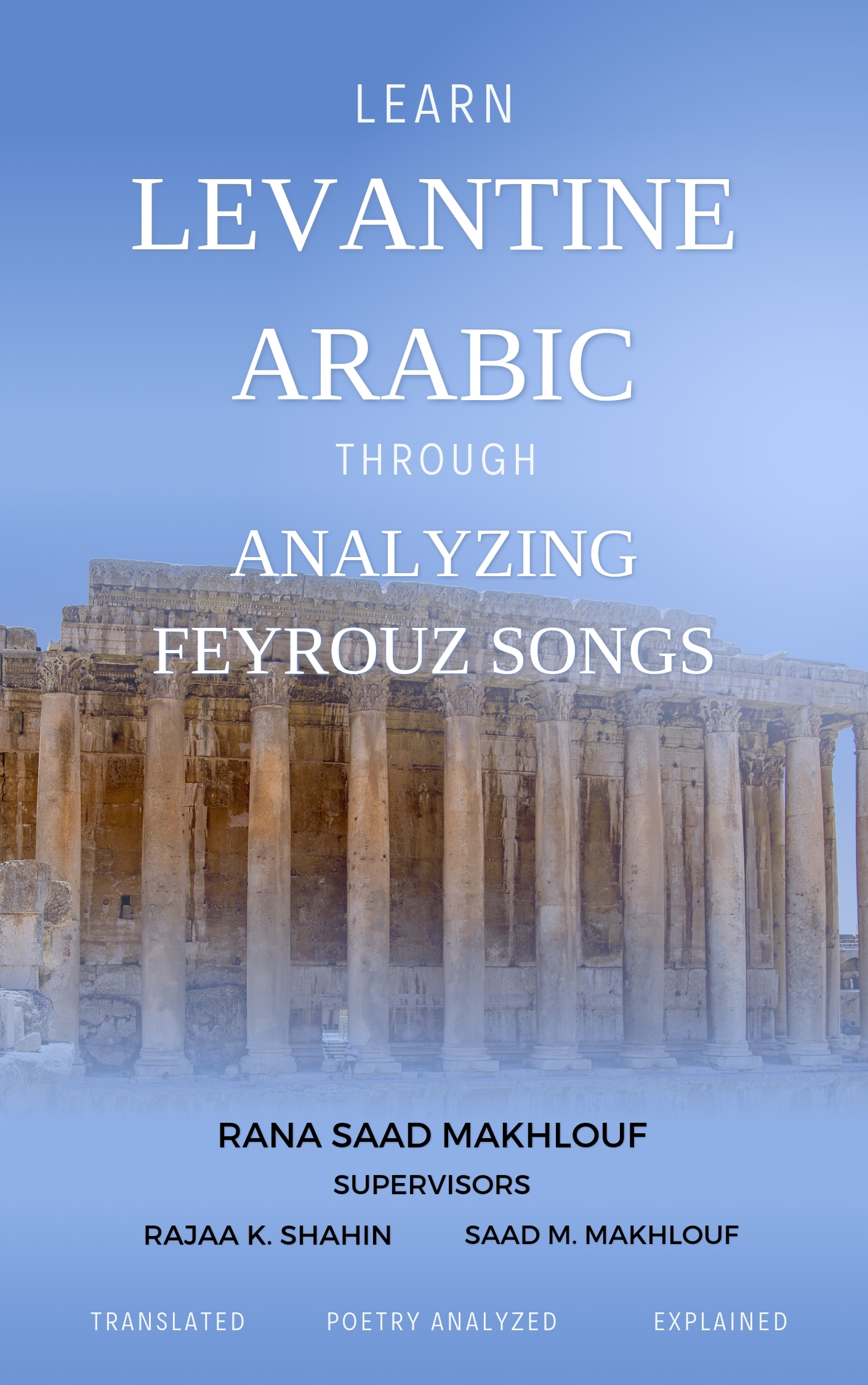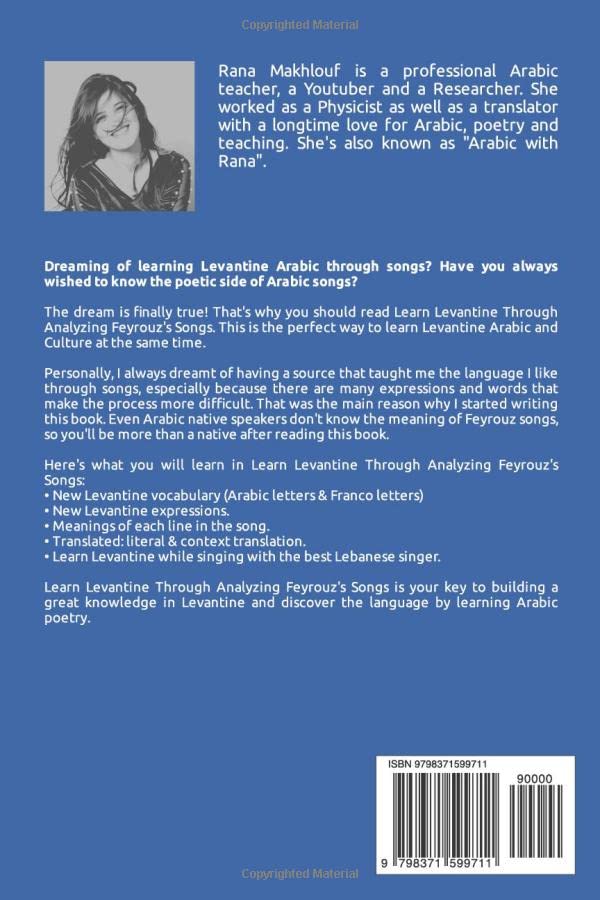Books
Translated Article About Rajaa Shahin's New Book
“Adonis, the Glow of Poetic Modernity” and imitators fell into linguistic and rhetorical problems.
An article - on Al-Ba'ath newspaper - written by Najwa Saliba about Rajaa Shahin’s new book.
Translated by: Rana Saad Makhlouf
Many people are intimidated to start researching Ali Ahmad Said Esber’s poetry “Adonis”. Many are also intimidated to start reading or criticizing his poetry, because wading into this sea requires a skilled swimmer, and molding its rocky shore requires a professional sculptor, it’s exactly this the writer Rajaa Shahin addresses in the introduction of her book “Adonis, the Glow of Poetic Modernity”, published by the Arab Writers Union - Studies Series 2023, where she states: “Writing about Adonis means to master the art of emerging from your intellectual cocoons and shells, equipped with a chisel of knowledge, sharpened by the blade of the ever-blooming question, and to master the art of sifting, isolating, and separating the rye grass from the wheat, and to be bold in abandoning your classic cloak, throwing it into the fire and re-weaving it again.” But is it possible for the audacity in analyzing “Adonis” to reach the level of audacity of an eight-year-old who insisted on welcoming the President Shukri Quwatli with a poem? The president later used part of one of its verses in one of his speeches!
Within the first chapter devoted to talking about poetry, renewal and modernity, Shahin states: “Poetry developed in the movement of renewal, within which many fans saw a designated role for incitement and enthusiasm, but many agree it is now actually regressing. I have the courage to say that all poetic forms are regressing in all world literatures, and the responsibility mostly falls on innovation and modernity in most of its forms, because poetry has caught up and kept pace with a skeptical, pessimistic culture, and has lost its role in bringing hope and joy. As with any artistic wave that takes off, those who found modern poetry assumed that it might be the savior”. Shahin also states: “I will not swim against the current, nor will I be biased in my criticism and reading. Rather, I will formulate with my writing what my eyes and insight see through my culture and inheritance, with the sweetness of the text and its words, with the magic of statement, the flavor of the symbol, and the glimpse of the allusion.”
In the second chapter of her book, which came under the title “Adonis and Breaking the Ordinary”, Shahin continues by talking about Arabic criticism, its pros and cons, and its dereliction of pursuing and delving into creative production, especially poetry and criticism in modernity.
She also discusses some of the matters a critic should keep in mind, stating: “We notice within the poetic field some individual opinions and directions among poets; directions predetermined by formal titles of modernization and change, without any explanation or justification. They tried to employ them to create a linguistic revolution, not just in name only. But unfortunately, these individual directions have remained stuck on a focus on the options of formalism and authoritarianism and got lost in those options.
When poetry - in its specificity - limited the exclusion of reality and the outside, poetic modernity was limited to a narrow concept that produced a “conflict of contradictions” focused on internal monologue, approximation, and linguistic experimentation, which is a strange vision; a vision that has dominated most modernist poets.
Adonis believes that writing poetry is reading the world; it is a reading charged with interpretation at some levels; interpretation is charged with “things” around us, and the secret of poetry is to remain an interpretation, in order to give the world and its “things” new names - see them in a new light. Adonis says: “Language here does not invent the “thing” alone, but rather invents itself within the invention, and poetry is where the word transcends itself, escaping the limits of its letters, and where the “thing” takes on a new image and another meaning.”
It is clear from this control that Adonis is concerned with the dream of the poets of the journal “shi’r” (1), Shahin states: “The Adonisian wave and its problems were the most capable of creating a modernity with a classical heritage. This liberated the language from any condemnation, by investing it -to the fullest extent- in the construction of the sentence and employing it to serve the poetic purpose; to serve it by adapting and developing the essence of the meaning and its energy in transformation and change. This also liberated the language from every temporality by enabling it to transmit the intended limitless action by delineating what was, is, and still is, an ongoing fact.”
Shahin adds: “Adonis was active in penetrating the ordinary, and he delved deep in penetrating and striving to see eternity and universal truth. He made double efforts to break down the barriers that exist between the real and the mythical, between the ambiguity and the coherent, until he was able to reach a precise equilibrium by mixing the romantic with the mystical. He then produced a transcendence in his inner soul towards the comprehensive truth as he searched and dug into his soul’s secrets.
Modernist poets and imitators of Adonis multiplied, and because they did not understand what modernity was and what Adonis wrote, they fell into great mazes and many mistakes that led to linguistic drought, non-rhythmic delirium, and linguistic and poetic production without any structure. This writing led them to psychological frustration, and they fell into linguistic and rhetorical problems, in addition to the artistic ones.”
Because most imitation is blind without insight, Shahin explains: “This imitation and repetition of Adonis’s writing everywhere, with or without understanding, led to a poetic heaviness that produced perceptions that distanced from the language, the subject, the idea, and the image. This distance made the produced texts enter into a schizophrenic, deficient cycle and a struggle of the alleged supra-poetic, intellectual, formal, and semantic claims, until linguistic production became transformed, losing its originality; it became a second memory filled with talismanic sounds.”
Shahin admits that she disagrees with the critics who preceded her who say that modern poetry destroys the authority of language and does not rely on heritage. She says: “Adonis's poetic experience seized the power of language closely connected to heritage, and invested all the existing elements in them (language and heritage). His experience also subjected the language terminology to what he wanted to say during the process of modernization that he innovated.”
Adonis is a great poet and a deceiver who declares something and does the opposite, opening up problems and conflicts for others that distract them from what he wants to say. Therefore, you see him continuing in his experience connected to his roots, without paying attention to what others say.
He intended, most of the time, to use the Standard language while occasionally using Colloquial language. He also found a more dynamic, multi-layered language that is comfortable with linguistic production and in need of multiple layers of meaning and their possibilities. A language that is multi-faceted; it contains illusion, magic, imaginative extravagance, and hidden gestures.”
Shahin then discusses “The Qualitative Leap of The Artwork and The Beauty Innovation of The Image of Poetic Material” by Adonis, and states: “Adonis focused on the awareness of the recipient, whose perception was confiscated, and who was raised over long ages by the power of the literary inheritance.
Most of Adonis's poetic works directed the reader’s awareness to contemplate the nature of poetry in order to establish with Adonis a memory and a hidden place that invites the reader to reconsider all the accumulations of the past.
In portraying his experience, Adonis used dramatic expression, and relied on narration of internal dialogue, to reveal a new voice that raises temptation and questioning by moving through narrative discourse to express his greater self, and then other occurring selves -upon his request- that are secondary to him.
Adonis began a new chapter of his life, when he started a process of introspection, and began to employ symbol and myth with a discriminating force; a force that does not contradict logically or fundamentally with the incompleteness of meaning ..
He caused a shock in this new chapter of his life, where he disrupted fixed and stable concepts -aesthetic, poetic, and cognitive- through rebellion against the past with its tyrannical and negative power, through questioning the feasibility of the certain faith attitude towards the world with its incomplete philosophy, and through his choice of a language that transcends language and contradicts with simulation.
Since he goes so far as to consider poetry a special type of knowledge, he had to choose his topics from external reality in response to the calls of his inner cognition, in order to meet his artistic and intellectual ambitions and his spiritual aspirations”.
Raja Shahin concludes her study by saying: “We conclude from this Adonisian experience that poetry exerts its overwhelming, deep and profound sense, and employs rhythm, vocabulary, and construction, to formulate a special world, within which the movement of universal life resonates. The vision within this poetry is great and enormous and capable of transporting time. It’s capable of producing flashbacks, and erasing the boundaries between the tripartite series of time.
In her study, Shahin uses eighty-two references, most of which were issued by publishing houses in Egypt, Iraq, and Lebanon. Perhaps that is why she emphasized the AWU’s initiative in the introduction and on the cover where she mentioned: “Perhaps this initiative of the Arab Writers Union constitutes an important shift in awareness of the official cultural institutions on the value of the intellect represented by Adonis and others like him, which we hope will be the first link in a series of successive shifts, and the inspiring initiative for others to break the ice currently preventing these intellects from being valued - an issue also overwhelming the body of Arab culture in general.
(1) "Shi'r": an avant-garde and modernist monthly literary magazine with a special reference to poetry.

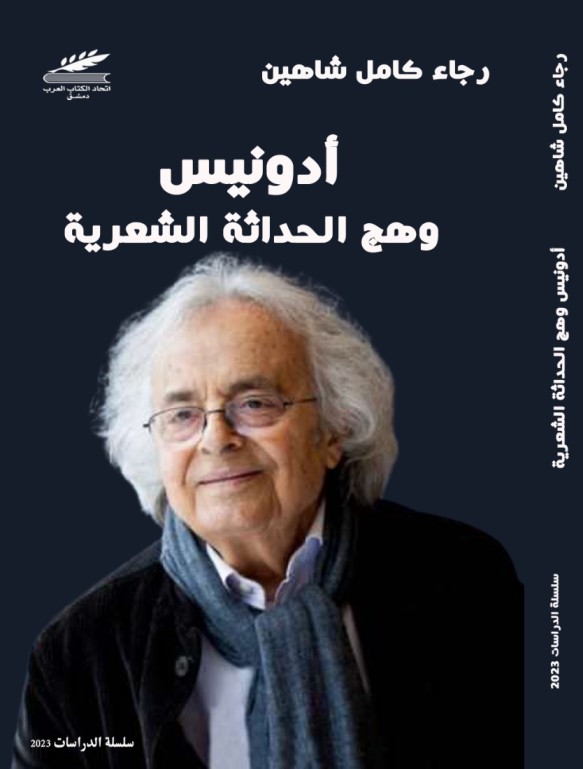
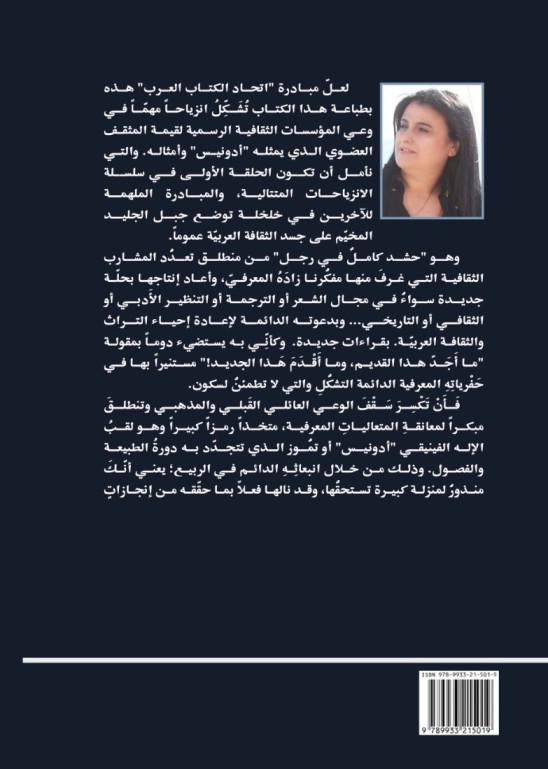
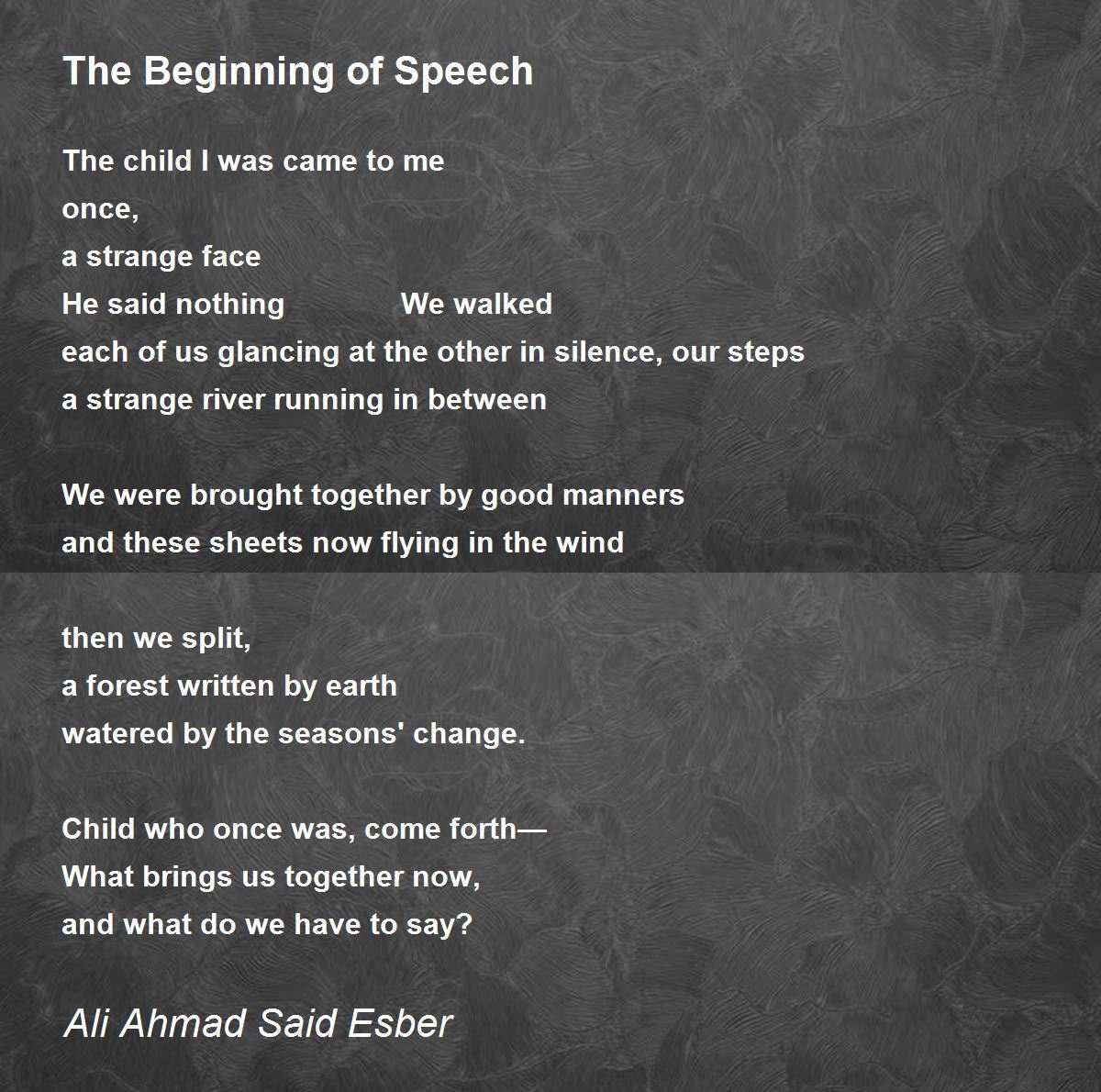

Books and authors
best Books

Saad Mahmoud Makhlouf
Poet
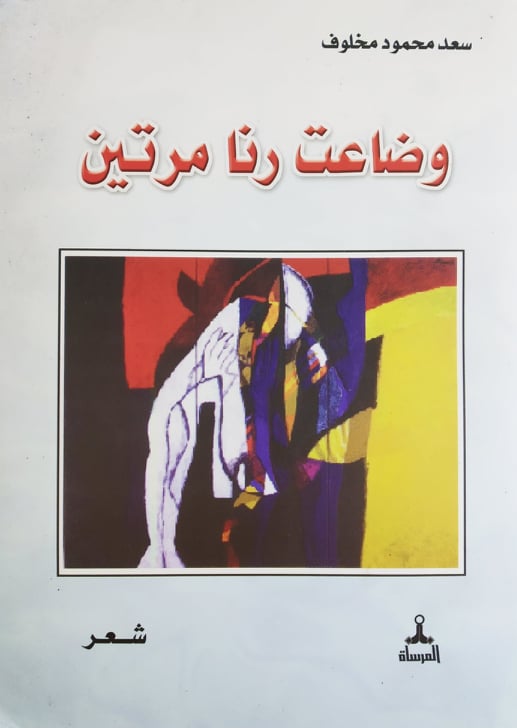
Rana was lost twice
By Saad Mahmoud Makhlouf
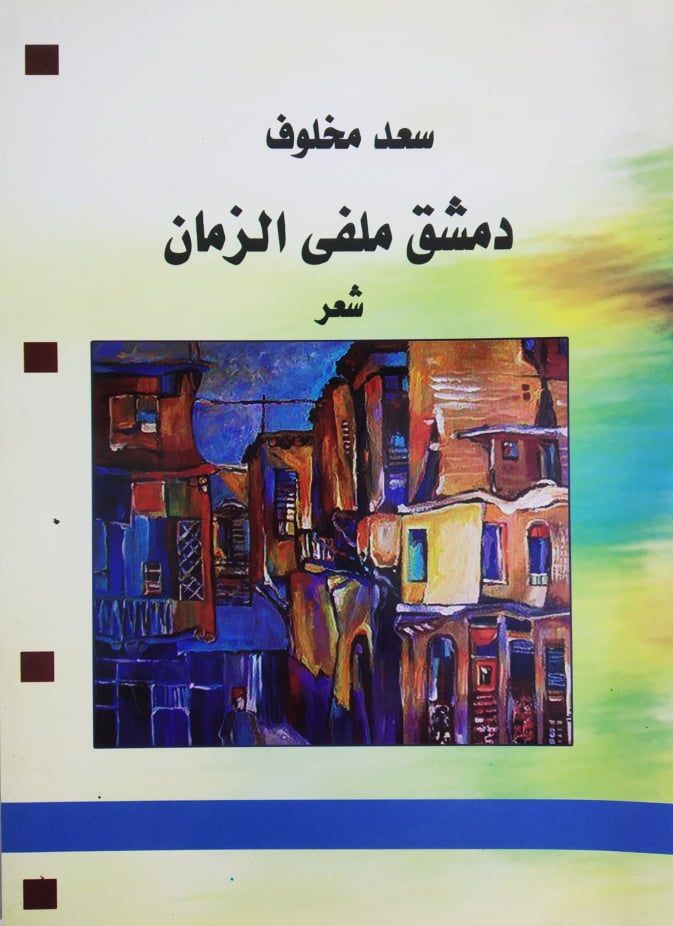
Damascus, the shelter of time
By Saad Mahmoud Makhlouf

Rajaa Kamel Shahin
Criticism Books Writer
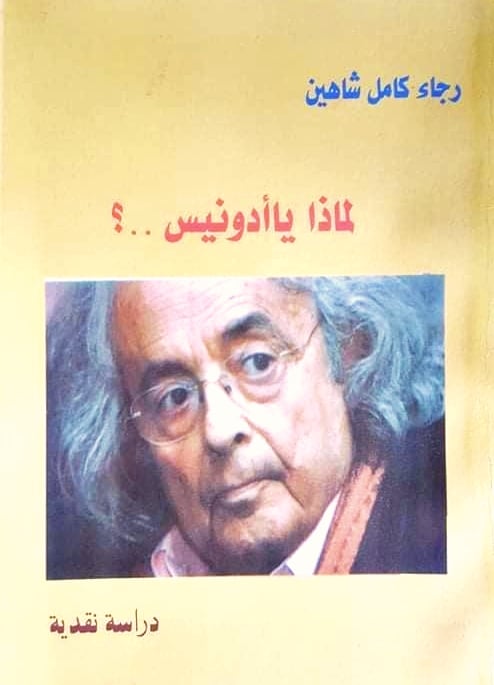
Why, Adunis?!لماذا يا أدونيس ؟
By Rajaa Kamel Shahin
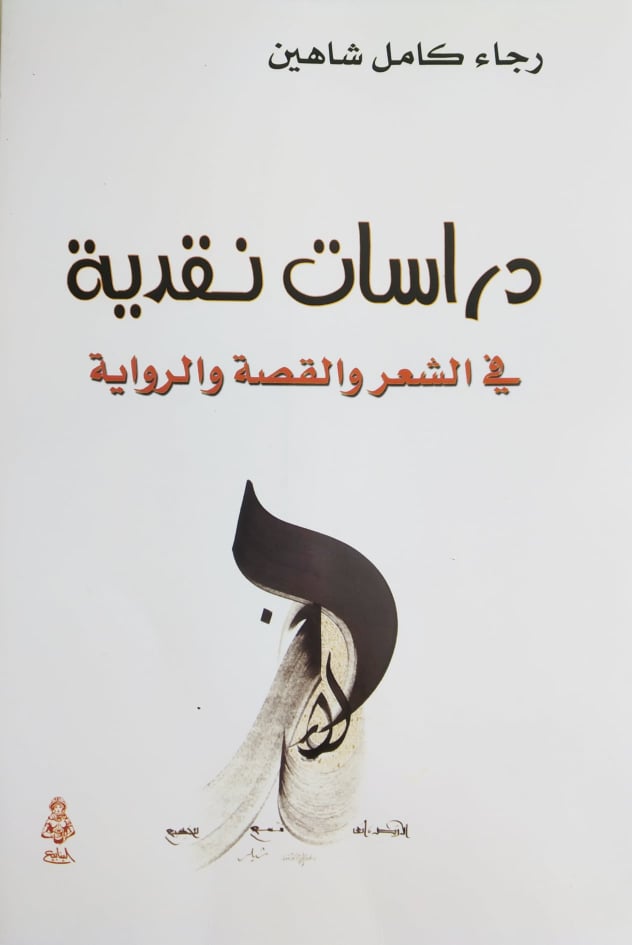
Criticism Studies
in
Poetry, Stories and Novels
OUT OF STUCK

